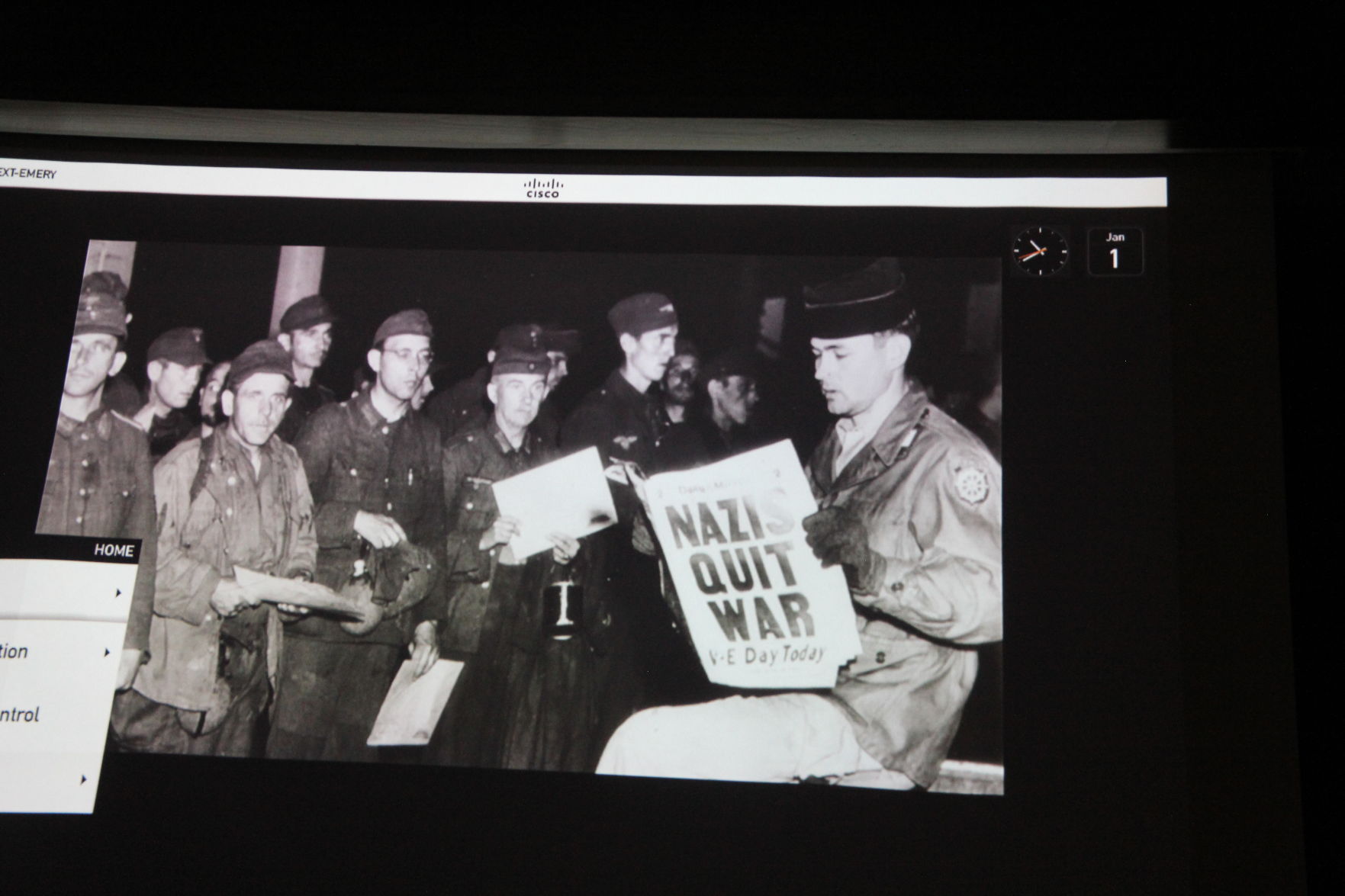The Emery County Historical Society held their monthly meeting at the Emery County Courthouse on Main Street in Castle Dale. The topic under discussion on that occasion was World War II prisoners of war held in a camp near Salina.
Historical Society President Lori Ann Larsen welcomed everyone then invited JJ Grant to offer a word of prayer and Parke Killpack to lead the group in the pledge of allegiance.
Lori introduced the special entertainment for the evening Jeanie Baggs who sang two songs that she has written titled “American Veterans” and “Across America.” About 20 years ago she put together a tape of songs titled “As I Look Across The Sea”, and “Light Up The World.” Baggs is a talented singer and songwriter. By the applause she received, the Historical Society members enjoyed her musical entertainment.
Following the wonderful music by Baggs, Bernice Payne introduced Alan Kent Powell author and historian.
Dr. Powell grew up in Huntington and went to school at Emery high school. He has written six books. One of those books is “Emery County Reflections of its Past and Future”.
The title for the evenings program was “Splinters of a Nation” taken from his book of the same name. Powell played for the group a DVD also named “Splinters of a Nation”.
Powell recently retired from being the senior public history coordinator at the Utah State Historical Society.
Powell said he had helped organize the Emery County Historical Society several years ago and was pleased to see how successful this society has been.
Powell presented a program last November about World War I and said, this program will be about World War II prisoners of war in Utah. Last year he shared some stories about men from Emery County that went into World War I.
We as Americans deserve to be proud of the way we treated German prisoners of war in the 1940s. Almost all the American soldiers conducted themselves in a Christian like manner in their treatment of the German prisoners of war. Those German prisoners of war arrived here from North Africa, Italy and later Germany near the end of the war.
Kent played the DVD video “Splinters of a Nation” which illustrated how the German prisoners of war were put to work harvesting the sugar beet fields and other crops around Salina. The DVD showed how the community accepted the German prisoners of war and some of the interactions with them in the community.
Powell in his research was able to interview a few of the former prisoners of war who had been held at Salina.
The DVD film also dealt with the shooting of German prisoners of war while they were sleeping in their tents in July 1945 by an American soldier from a guard tower overlooking the camp.
During World War II there were about 370,000 German soldiers sent to the United States as prisoners of war. They were housed in camps in nearly all of the 48 states. Here in Utah German prisoners were held in 12 different camps. Salina was the farthest south POW Utah camp. Prisoners of war were sent mostly to work in the defense industries. But in Salina they were working in the sugar beet fields.
Powell wanted to know, how did these men respond to America, what was their attitudes towards the United States while they were here and what was their attitude after they left. How were they treated in comparison to how the American prisoners of war were treated in Germany and other countries during World War II? Powell had the opportunity to interview a number of the men that had been POW’s in Utah after they returned home to Germany.
Of the 25 men I interviewed all of them were eager to talk to me and expressed thanks to the United States, to the Americans for the good treatment that they received here. It was a great experience to have the opportunity to interview these men.
The book “Splinters of a Nation” title came from a prisoner of war in Ogden. He expressed how those prisoners of war were splinters of a nation that had gone through a war and were trying to recover.
Powell then told the story of a farm woman in Garland of having German prisoners of war on their farm and working with them. Her grandson Scott Porter wanted to produce a documentary film about the prisoner of war experience here in Utah.
The video produced by Scott Porter illustrates the good living conditions and working conditions had by those Utah German prisoners of war.
Porter was able to locate and interview three former prisoners of war that had been in Utah.
He was particularly interested in the shooting of the prisoners of war in Salina. That shooting took place on the night of July 8, 1945 about two months after the war ended.
The guard Clarence Bertucci fired his machine gun into the tents filled with sleeping Germans. Eight Germans were killed and 20 were wounded before the shooting stopped. The headline in the Salt Lake Tribune stated “Utah Guard kills eight Nazis 20 others hurt as soldier fires into tents.”
The Historical Society traveled to Salina Utah to see the location of the CCC/POW camp, the Museum that was opened a year ago for Veterans Day and the hospital where the wounded POW’s were taken after being shot.
They also planned a lunch at Mom’s Café (open during World War II) where the prison guard who shot the prisoners of war came into Mom’s Café and told the people there that “something terrible is going to happen tonight.”
They also planned to visit Miss Mary’s Museum, of Salina, built in the 1980s.
Historical Society president Lori Ann Larsen thanked Kent Powell for his very interesting historical presentation.
Historical Society learns about German prisoners of war

IMG_7544.JPG
